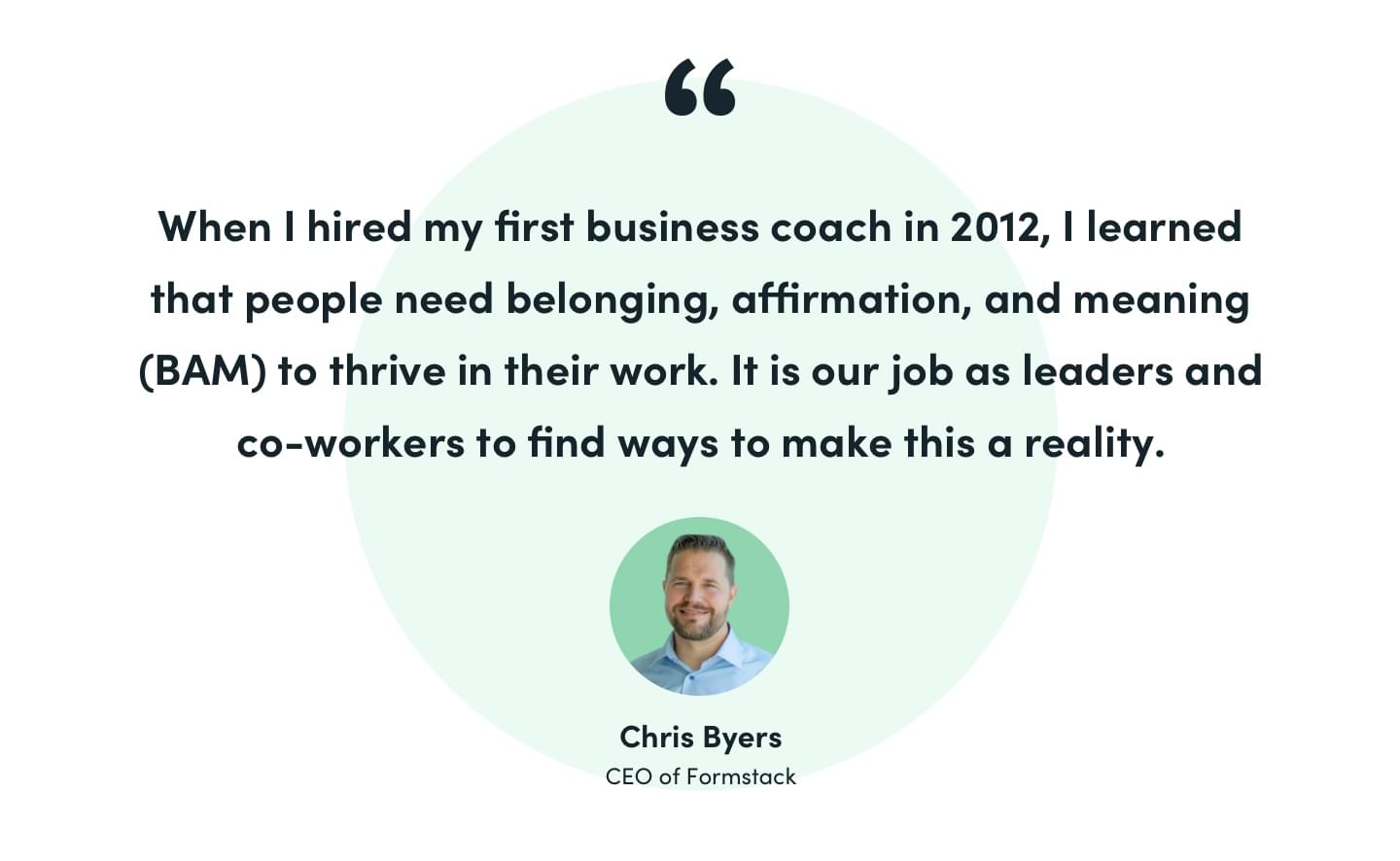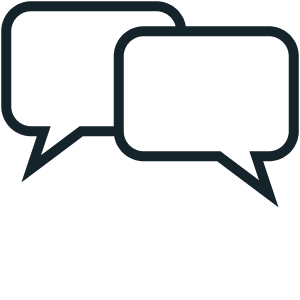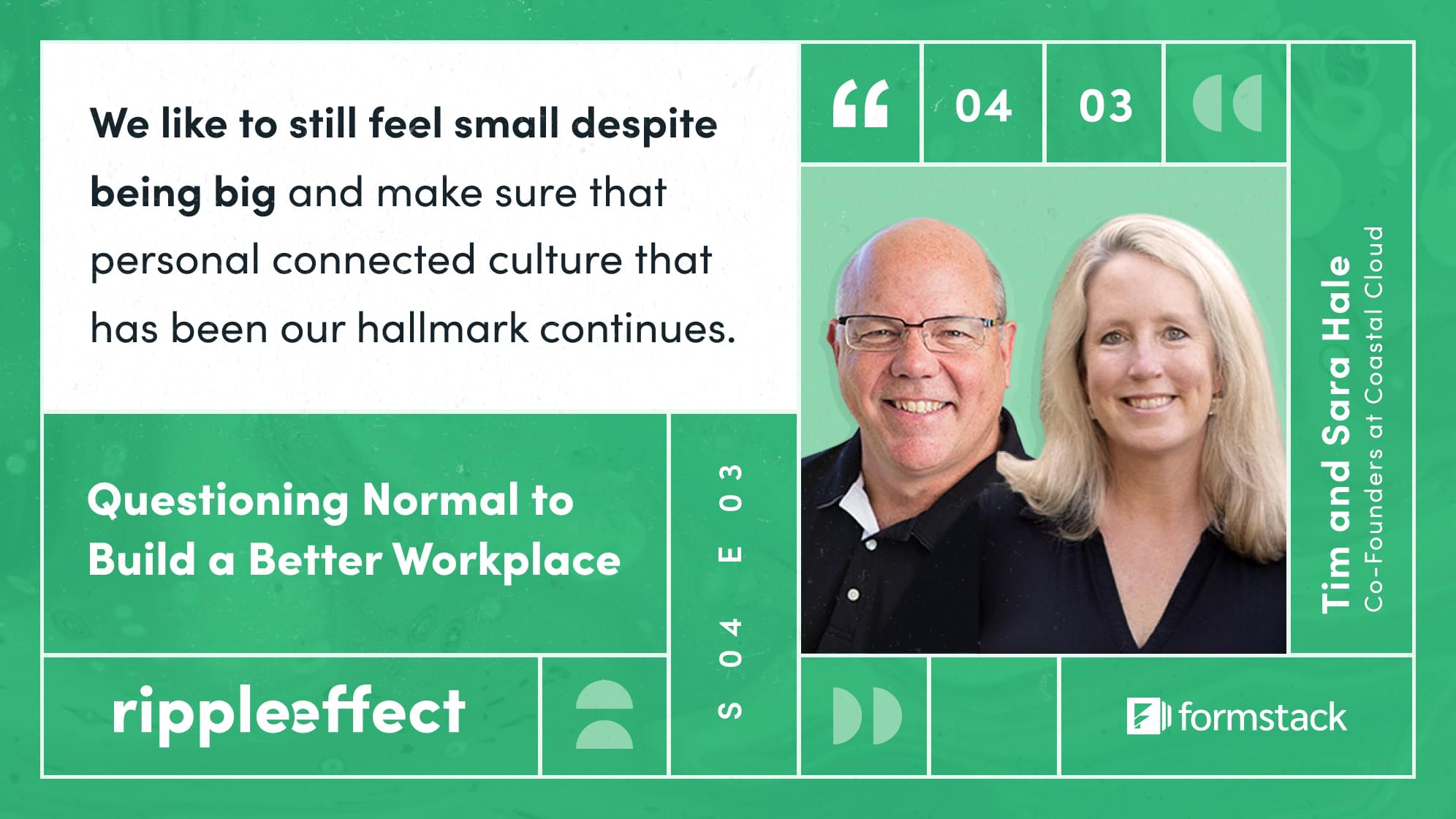Have you heard of The Great Resignation?
Here at Formstack, we’ve been discussing this massive shift in the workforce for a while now. NPR notes the great resignation has come to fruition due to a combination of stress from the pandemic, changing expectations of the workforce, and shifts in remote work availability.
Formstack’s CEO, Chris Byers, even wrote a bit about this phenomenon earlier this year. He pointed out that workers need belonging, affirmation, and meaning (BAM) to thrive in their work. The COVID-19 pandemic has made many people realize they are missing some, or even all, of these aspects in their workplace, leading them to look elsewhere to feel happy and fulfilled.

On a recent episode of Formstack’s Ripple Effect podcast, Chris got to dig into the topic of employee happiness with Tim and Sara Hale, co-founders and managing partners of Coastal Cloud. In the episode, Tim and Sara share the ways they’ve strategically shifted away from “business as normal” to produce something better for employees, partners, and customers.
Below, we share some of their best tips and pointers on how to build a better workplace that retains employees, creates a better working environment, and leads to overall business success.

Rather listen? Check out Tim and Sara’s Ripple Effect episode, Questioning Normal to Build a Better Workplace, now!
Be Diverse
A homogeneous workplace isn’t necessarily a great work environment. When a majority of workers look, think, or act alike, it can cause groupthink, which can minimize innovation, growth, and opportunities.
Building diverse teams across all departments is an excellent way to ensure your organization and employees continue to thrive. It’s important to hire people of different thought processes, backgrounds, ethnicities, genders, ages, and regions to ensure you’re building a diverse team.
For Tim and Sara, bringing diversity to Coastal Cloud has reaped many benefits, from creating strong teams to bringing forth better business results. Tim sees the value of diversity from a personal, professional, and business standpoint:

We need to be able to connect with our clients to really earn a trusted advisor relationship. And our clients all come from very diverse backgrounds and experiences, and we need to reflect that. Diversity is great, and we should all be embracing it because it's more rewarding. But it's also very good for business results, too.
Focus on Balance
Employee burnout is a serious issue that has been rampant since the onset of the COVID-19 pandemic. For many workers, blurring the line between home life and work life has had negative effects. When you’re unable to fully switch off from work mode, you begin to feel overworked, under-appreciated, and unhappy.
The key to building a better workplace is to understand that employees need balance. Without a distinction between work time and home time, employees quickly begin to feel burned out. If employees feel that their employer does not appreciate or support work-life balance, they will begin to look for an employer who does. As Tim explains:

What we discovered was a lot of people are seeking the same kind of balance Sara and I were. How can we have engaging, rewarding professional consulting careers, but also have a good home life and be able to coach our kids soccer teams or what have you? It has helped attract talent because a lot of people were looking for that balance.
Create Tight-knit Teams
As Sara and Tim have grown their consulting agency from a handful of employees to nearly 350, they’ve realized the importance a tight-knit team plays in building a great work environment.

Regardless of the size of your workplace, there are ways you can continue creating tight-knit teams that are able to connect well, on a work and personal level. Here are a few ideas:
- Create smaller teams within departments
- Empower employees to create committees for special projects
- Offer employee interest groups to connect employees with similar interests or goals
- Provide social opportunities to allow employees to connect on a personal level
- Develop small mentorship groups of 5-10 employees
Whether your organization has a few hundred employees or a few thousand, creating smaller groups within your organization can help employees feel more connected and valued. As Sara shares:

What we're trying to do is create businesses within our business. We're broken into eight different business units, and we are encouraging the executives that lead those units that their responsibility is for their people to still feel that they're a part of something and know each other's lives inside of work and outside of work, if people want to share that.
Provide Flexibility
With the rise of remote work, digital-first work environments, and even four-day work weeks, employees are beginning to expect more flexibility within the workplace.
One way Sara and Tim provide employees with more flexibility is by measuring deliverables versus time. To them, the most important measurement is the work you get done, not the time you spent doing the work.
It can be hard to shift into this type of mindset, especially if your work environment has been heavily office-based with a traditional 9-to-5 schedule. But shifting to a production mindset versus a time mindset can do wonders for workers. When employees are valued for what they contribute and create, versus just the time they put in, they can create a better work-life balance.
Measuring employees on outputs also helps them feel more trusted and valued. Allowing employees flexibility on when, where, and how they work can truly transform the culture of your organization and provide employees the power to create a work environment that best suits their individual needs.
Help People Work at Their Best
Whether you’re a team member, manager, executive, or business owner, the tips above can help anyone create a better workplace that enables employees to thrive. When you put people first and focus on what is best for them and the business, you can reap some amazing results.
Want even more tips on how to build a better business that creates happy employees and profits? Listen to Sara and Tim’s episode, Questioning Normal to Build a Better Workplace, now!











